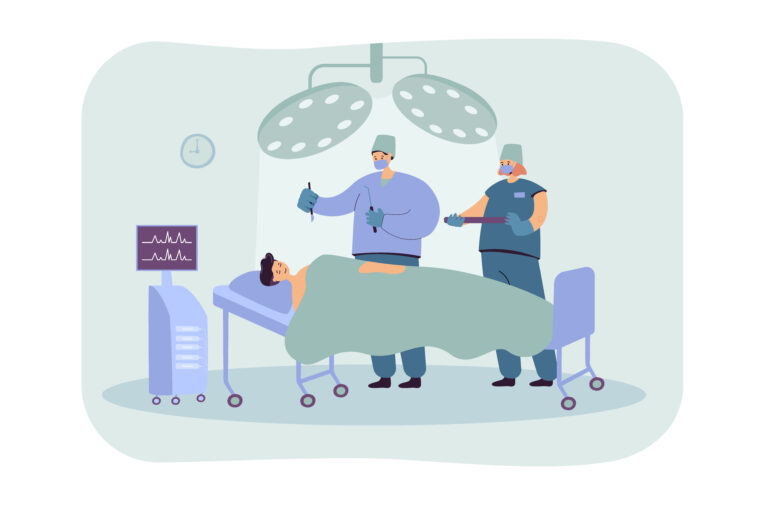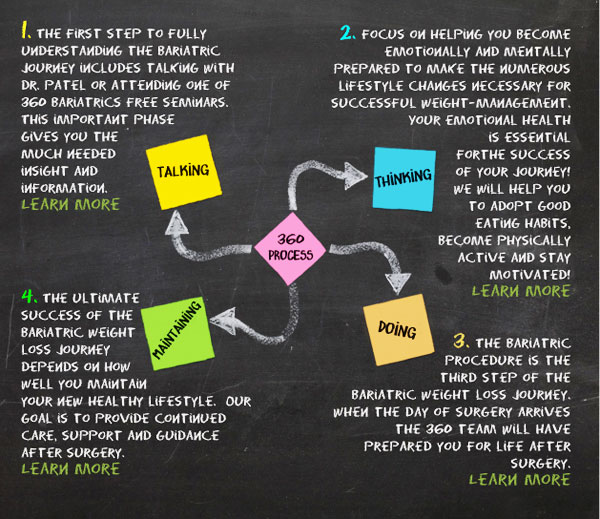Weight Loss Surgery: Your Journey to a Healthier You
So, we’ve all heard about weight loss surgery, right? It’s been a popular topic lately, with more and more people considering it as a way to achieve their weight loss goals. But what exactly is weight loss surgery? And how does it work? Well, in this article, we’ll dive into the world of weight loss surgery and explore the different options available to you. We’ll discuss procedures like gastric sleeve, gastric bypass, and gastric band, as well as non-invasive weight loss methods. By the end of this article, you’ll have a better understanding of weight loss surgery and how it can help you on your journey to a healthier you.
Now, if you’re curious about weight loss surgery and want to know more, you’ve come to the right place. In the next section, we’ll take a closer look at the different types of weight loss surgery, including their benefits and risks. We’ll also discuss the qualifications for weight loss surgery and what to expect before, during, and after the procedure. Whether you’re just starting to consider weight loss surgery or you’ve already made up your mind, this article will provide you with the information you need to make an informed decision about your health. So, let’s get started on your journey to a healthier you with weight loss surgery!

Introduction to Weight Loss Surgery
What is weight loss surgery?
Weight loss surgery, also known as bariatric surgery, is a procedure that helps individuals with obesity achieve significant weight loss. It involves making changes to the digestive system to restrict food intake, reduce absorption of nutrients, or both. This surgical intervention is usually recommended for people who have tried other weight loss methods without success and whose obesity poses a serious health risk.
Why choose weight loss surgery?
Weight loss surgery offers long-term solutions for individuals struggling with severe obesity. It provides a means to achieve and maintain a healthier weight, leading to improvements in overall health and quality of life. For many, traditional diet and exercise alone are insufficient to achieve significant weight loss. Weight loss surgery can be a life-saving option for those who have experienced obesity-related health complications, such as type 2 diabetes, high blood pressure, or sleep apnea.
Benefits of weight loss surgery
Weight loss surgery offers numerous benefits beyond just shedding excess pounds. Along with a significant reduction in weight, patients often experience improved overall health, increased energy levels, enhanced mobility, and a decreased risk of obesity-related diseases. In addition, weight loss surgery can positively impact mental well-being, body image, and self-confidence. It is a transformative journey that can lead to a healthier, happier, and more fulfilling life.
Preparing for Weight Loss Surgery
Choosing a qualified surgeon
Selecting a qualified and experienced weight loss surgeon is crucial to the success of your surgery and overall well-being. Dr. Jay Suggs, a renowned bariatric surgeon at Alabama Bariatrics, is dedicated to providing exceptional care and personalized treatment plans to patients seeking weight loss surgery. With his expertise and compassionate approach, Dr. Suggs ensures that each patient receives the highest quality of care and support throughout their weight loss journey.
Consultation with Dr. Jay Suggs
During the initial consultation with Dr. Suggs, he will evaluate your health, discuss your weight loss goals, and determine if weight loss surgery is right for you. This consultation provides an opportunity to address any concerns or questions you may have, and allows Dr. Suggs to develop a customized treatment plan tailored to your unique needs.
Medical evaluation
Before undergoing weight loss surgery, a comprehensive medical evaluation is necessary to assess your overall health and determine the most suitable surgical approach. This evaluation may include blood tests, physical examinations, and consultations with other medical specialists to ensure that you are physically and mentally prepared for surgery.
Pre-surgery diet and exercise
To prepare your body for weight loss surgery, Dr. Suggs may recommend a pre-surgery diet and exercise plan. This plan is designed to help you lose some weight and adopt healthier habits before the surgery. Following this plan can help reduce the size of your liver, which makes the surgery safer, and also prepares you for the lifestyle changes that will be necessary after surgery.

Types of Weight Loss Surgery
Gastric Sleeve surgery
Gastric Sleeve surgery, also known as sleeve gastrectomy, is a minimally invasive procedure that involves removing a significant portion of the stomach, leaving behind a smaller, sleeve-shaped stomach. This technique restricts the amount of food that can be consumed, leading to reduced hunger and earlier feelings of fullness.
Gastric Bypass surgery
Gastric Bypass surgery, also known as Roux-en-Y Gastric Bypass, involves creating a smaller stomach pouch and rerouting the small intestine to decrease the amount of food absorbed by the body. This procedure combines both restriction and malabsorption techniques, resulting in significant weight loss.
Gastric Band surgery
Gastric Band surgery, also known as Lap-Band surgery, involves placing an adjustable band around the upper part of the stomach, creating a small pouch that limits food intake. The band can be tightened or loosened as needed to regulate the amount of food that can be consumed.
Comparison of different types of weight loss surgery
Each type of weight loss surgery has its own benefits and considerations. Gastric Sleeve surgery is a popular choice due to its relative simplicity and effectiveness. Gastric Bypass surgery is known for its long-term success and potential improvement in obesity-related health conditions. Gastric Band surgery offers adjustability and reversibility, but may require more frequent follow-up visits for adjustments. The choice of surgery will depend on individual goals, medical history, and consultation with Dr. Suggs.
Procedure and Recovery
Surgical procedure details
The specific details of the surgical procedure will vary depending on the type of weight loss surgery chosen. However, most weight loss surgeries are performed using minimally invasive techniques, such as laparoscopy, which involve making several small incisions in the abdomen instead of one large incision. This approach allows for faster recovery, reduced scarring, and less post-operative discomfort.
Anesthesia and hospital stay
Weight loss surgery is performed under general anesthesia, ensuring that you are asleep and pain-free throughout the procedure. The length of hospital stay after surgery will vary depending on the type of surgery and individual circumstances. Typically, patients can expect to stay in the hospital for one to three nights to ensure proper monitoring and recovery.
Recovery timeline
The recovery period after weight loss surgery is unique to each individual, but most patients can expect to return to their normal activities within a few weeks. Pain and discomfort are common during the early stages of recovery, but these symptoms can be managed with medication prescribed by Dr. Suggs. It is important to follow post-operative guidelines and attend scheduled follow-up appointments to ensure a smooth and successful recovery.
Post-surgery diet and lifestyle
Following weight loss surgery, a new diet and lifestyle will be necessary to support optimal weight loss and overall health. Dr. Suggs and his team will provide you with detailed guidelines for the post-surgery diet, which typically consists of small, frequent meals that are high in protein and low in carbohydrates and fats. Regular exercise, including both cardiovascular and strength training, is also encouraged to enhance weight loss and maintain muscle mass.

Risks and Complications
Potential risks of weight loss surgery
While weight loss surgery is generally safe, like any surgical procedure, it does carry some risks. Potential risks include infection, bleeding, blood clots, reaction to anesthesia, and complications related to the surgical incisions or the staple line. However, with Dr. Suggs’ expertise and adherence to the highest standards of safety, these risks are minimized.
Common complications and their management
Common complications that may arise after weight loss surgery include staple line leakage, bowel obstruction, digestive problems, or nutritional deficiencies. These complications can usually be managed with proper medical care and follow-up. Dr. Suggs and his team will closely monitor your progress and address any complications that may arise, providing the support and guidance you need to ensure a successful outcome.
Long-term effects and follow-up care
Following weight loss surgery, lifelong follow-up care is essential to address any potential long-term effects or complications. Regular appointments with Dr. Suggs will allow for ongoing monitoring of your progress, adjustment of medication or dietary supplements, and the provision of any necessary support or guidance. Long-term follow-up care is crucial to ensure the maintenance of weight loss, overall health, and well-being.
Expected Results and Benefits
Weight loss expectations
Weight loss surgeries often result in significant and sustained weight loss. While the exact amount of weight loss varies from person to person, most individuals can expect to lose a substantial percentage of their excess weight within the first year after surgery. Over time, weight loss may stabilize, but patients can achieve long-term weight maintenance by adhering to the recommended diet and lifestyle changes.
Improvement in obesity-related health conditions
Weight loss surgery is not only about shedding pounds but also about improving overall health and reducing the risk of obesity-related health conditions. Many patients experience significant improvements or even remission of conditions such as type 2 diabetes, high blood pressure, sleep apnea, and joint pain. These improvements contribute to a healthier and more fulfilling lifestyle.
Enhanced quality of life
Weight loss surgery can have a profound impact on an individual’s quality of life. Beyond the physical benefits, patients often report increased self-confidence, improved body image, and a renewed sense of self. With improved mobility, energy levels, and overall well-being, individuals are able to engage in activities they previously found challenging or impossible. Weight loss surgery is a transformative journey that opens doors to a healthier, more fulfilling life.

Non-Invasive Weight Loss Procedures
Non-surgical options for weight loss
Not everyone is a candidate for weight loss surgery. For individuals who are not eligible or prefer non-surgical interventions, there are non-invasive weight loss procedures available. These procedures, such as gastric balloon or endoscopic sleeve gastroplasty, involve temporary modifications to the stomach to decrease appetite or limit food intake. While these treatments may not produce the same degree of weight loss as surgery, they can still be effective for some individuals.
Benefits and limitations of non-invasive weight loss procedures
Non-invasive weight loss procedures offer several benefits, including their non-surgical nature, minimal downtime, and reversibility. These procedures can be an excellent option for individuals looking for a less invasive approach or as a stepping stone towards surgical intervention. However, it’s important to note that the results of non-invasive procedures may not be as significant or sustainable as those achieved through weight loss surgery. Dr. Suggs can help determine the most appropriate treatment plan based on your unique circumstances and weight loss goals.
Lifestyle Changes and Support
Adopting healthy eating habits
Weight loss surgery is not a quick fix; it requires a lifelong commitment to adopting healthy eating habits. After surgery, portion control, mindful eating, and a focus on whole, nutritious foods are crucial for long-term success. Dr. Suggs and his team provide ongoing nutritional guidance and support to help you develop and maintain a healthy eating plan that promotes weight loss, enhances nutritional balance, and supports overall well-being.
Incorporating exercise into daily routine
Regular physical activity is an essential component of sustainable weight loss and overall health. Following weight loss surgery, Dr. Suggs encourages patients to gradually incorporate exercise into their daily routine. Engaging in both cardiovascular exercises and strength training can help facilitate weight loss, preserve muscle mass, and improve overall fitness. Exercise also offers mental health benefits, including stress reduction and improved mood.
Psychological and emotional support
Weight loss surgery is not only a physical transformation; it also involves emotional and psychological changes. It is important to address the emotional factors that contribute to overeating or weight gain. Dr. Suggs and his team offer psychological support and counseling to help you navigate the emotional challenges that may arise during your weight loss journey. This support is crucial for long-term success and overall well-being.
Support groups and counseling
Joining support groups or participating in counseling sessions can provide invaluable encouragement, guidance, and understanding throughout your weight loss journey. Interacting with individuals who have undergone or are undergoing weight loss surgery can provide support, motivation, and a sense of community. At Alabama Bariatrics, we offer ongoing support groups and counseling services to ensure that you have the tools and resources you need for lasting success.

Cost and Insurance Coverage
Cost of weight loss surgery
The cost of weight loss surgery can vary depending on several factors, including the type of surgery, surgical approach, hospital fees, anesthesia charges, and post-operative care. It is important to consult with Dr. Suggs and his team to understand the specific costs associated with your surgery. At Alabama Bariatrics, we strive to provide transparent pricing and work closely with insurance providers to ensure that our patients receive the maximum coverage possible.
Insurance coverage and requirements
Many insurance companies recognize the medical necessity of weight loss surgery and provide coverage for eligible individuals. However, coverage requirements and criteria may vary among different insurance providers. Our dedicated team at Alabama Bariatrics will assist you in navigating the insurance process, verifying benefits, and meeting any required criteria to ensure that you receive the coverage you need for your weight loss surgery.
Financing options
If your insurance does not cover weight loss surgery or you are not eligible for insurance coverage, there are financing options available to help make weight loss surgery more affordable. These options, such as healthcare credit cards or medical loans, allow you to spread the cost of surgery over manageable monthly payments. Dr. Suggs and his team will provide guidance and assistance in exploring financing options so that cost does not hinder your journey towards a healthier you.
Conclusion
Weight loss surgery is a transformative journey that can lead to profound health improvements and a higher quality of life. With the guidance of Dr. Jay Suggs and the dedicated team at Alabama Bariatrics, you can embark on this journey with confidence and support. From choosing the right surgical approach to implementing sustainable lifestyle changes, we are committed to providing the highest level of care and helping you achieve your weight loss goals. Contact us at Alabama Bariatrics today and take the first step towards a healthier, happier you.